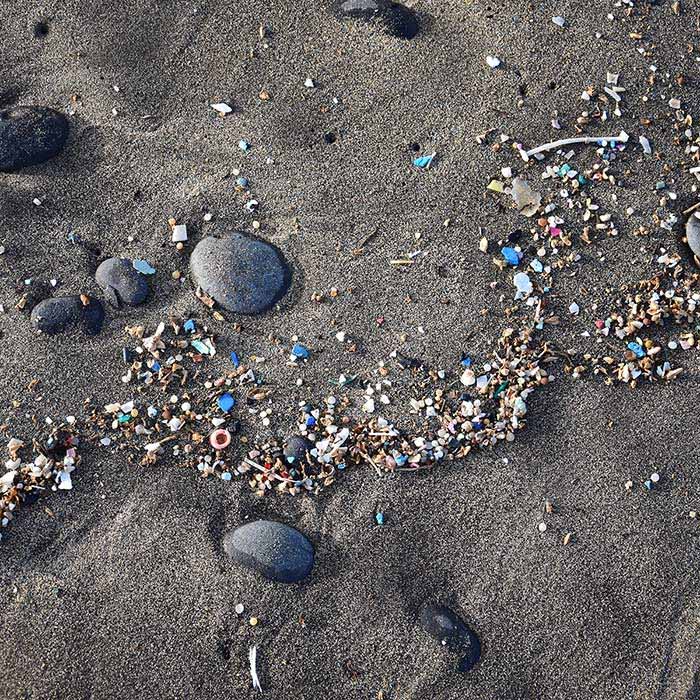Partnerships for Environmental Public Health (PEPH)

Microplastic Pollution and Human Health
June 22, 2020
Interviewee: Mark Hahn, Ph.D.
In this podcast, you’ll hear from Mark Hahn at Woods Hole Oceanographic Institution about how microplastics impact human health and the ecosystem, and how researchers are working to address this issue.
Microplastic Pollution and Human Health
Each year, around 8 million metric tons of plastic are dumped into the ocean. Microplastics, tiny pieces of plastic less than five millimeters in length, constitute only about 3 percent of this pollution, but they have the potential to have large impacts on human health. Their small size, ranging from microscopic to about the size of a pencil eraser or ant, allows them to be ingested by creatures as small as plankton, and move up the food chain, inevitably reaching humans.
While the health effects of microplastics are largely unknown, plastics are known to have endocrine disrupting effects, which means they alter the way hormones normally function in the body. Microplastics present a potential two-fold risk, because they are not only composed of harmful chemicals, but they accumulate additional persistent organic pollutants as they float in our oceans. As they are becoming increasingly prevalent in the food chain, scientists and health professionals have focused more attention on the potential health risks for humans.
Interviewee

Mark Hahn, Ph.D., is a Senior Scientist and Chair of the Biology Department at Woods Hole Oceanographic Institution. He is a project leader of the Boston University Superfund Research Program Center where he studies the mechanisms and impacts of PCB resistance in fish populations. He is a comparative and molecular toxicologist who has spent his career investigating mechanisms of chemical toxicity and the differences in sensitivity to ubiquitous, highly toxic chemicals between populations and species of animals. Hahn’s expertise on the biological effects of chemicals contained in plastic, and the health consequences that may result from these exposures, make him an excellent source of information for our discussion of microplastics.
Additional Resources
- Check out the National Oceanic and Atmospheric Administration webpage What are Microplastics?
- Listen to an NPR podcast on microplastics.
- Read a Rolling Stone article “Planet Plastic”.
- Read a Scientific American overview of microplastic pollution.
- Read Woods Hole Oceanographic Institution’s overview of marine microplastics.


